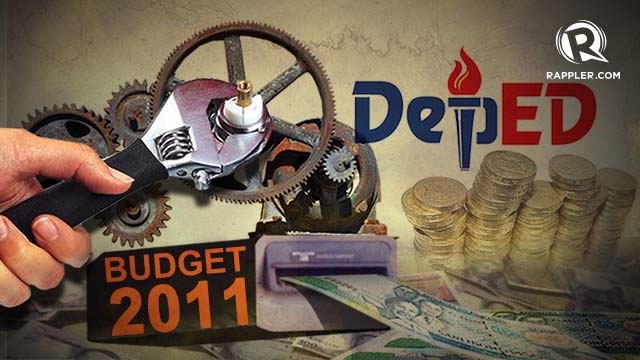SUMMARY
This is AI generated summarization, which may have errors. For context, always refer to the full article.

The Department of Education (DepEd) is one of the agencies that has improved its delivery of services due to social accountability. Social accountability means that while the government must account for its performance and actions, citizens and citizen organizations must also hold government agencies and officials accountable.
Despite reforms, however, a study conducted by the Philippine Business for Education (PBEd) and Araullo University reveals that DepEd has yet to improve in specific areas — particularly in budget preparation and implementation.
Data for the study were gathered through interviews with school and budget officials, focus group discussions, and examination of budget appropriation, allotment and obligation documents. Two school districts, Cabanatuan and Muñoz cities, were used as case studies.
The study examined how budget for the schools’ maintenance and other operating expenses (MOOE) are crafted and used. In addition, the study also looks at how the MOOE is complemented by the Special Education Fund (SEF) allocated to local districts. There are 3 parameters for which the budget process and the execution were assessed: participation, effectiveness, and efficiency.
In 2010, the DepEd adopted a new scheme for computing MOOE allocation, also referred to as the “Boncodin formula,” as it was introduced by former Department of Budget and Management (DBM) secretary, Emilia Boncodin. The study reveals that this improvement is more reflective and responsive to the schools’ needs.
In terms of releasing the funds to schools, prior to 2011, the schedule has been unpredictable. However, in 2011, funds have been released on a monthly basis. This allowed the principals to directly address the needs of the students and the requirements of the schools.
Little participation of teachers, parents
However, the study also found out that the participation of teachers and parents has been negligible as reflected in the budget. They are consulted to identify the needs of the school, but these may not be prioritized. The study recommends increased participation of civil society so the budget becomes more responsive to needs.
In the two case studies, the SEF is used for MOOE and for payment of teaching and non-teaching personnel. The study argues that while SEF can be used for MOOE, the guidelines and Commission on Audit (COA) rules are not clear if it is allowed for personnel use.
The study recommends better monitoring systems in the implementation of the MOOE. In addition, it also recommends better guidelines for the SEF to supplement the MOOE, as well as improved harmonization of funds from MOOE and SEF. This way, the national budget is efficiently allocated among local districts.
Finally, in the light of reforms that DBM is initiating in 2012 onwards, the study recommends that DepEd institute new policies and processes to improve the releases and use of the MOOE and SEF. – Rappler.com
This story is published in partnership with the Philippine Business for Education. To know more about the study, please find the full report below.
Add a comment
How does this make you feel?
There are no comments yet. Add your comment to start the conversation.